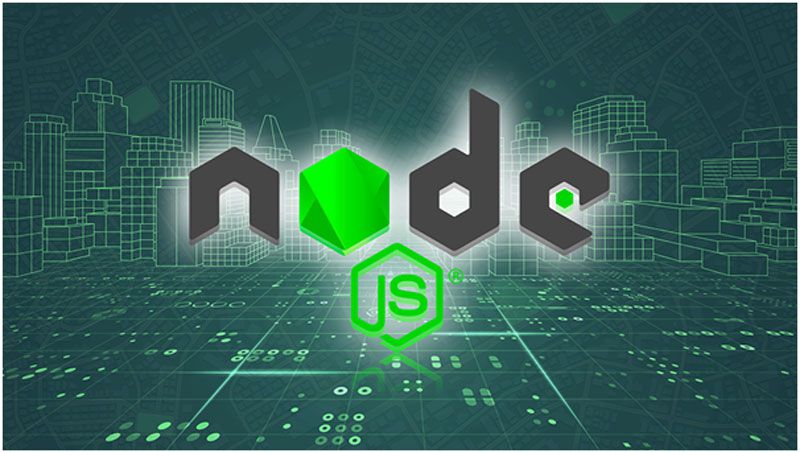Node.js is a JavaScript runtime based on Chrome’s V8 JavaScript engine, and it’s widely praised for the speed, scalability, and efficiency with which it powers server-side programmes. Node.js’s capacity to process several requests in parallel gives it a great environment in which to create an ERP system. In order to handle the complexity and high resource requirements of ERP systems, Nodejs Development is the ideal platform. This article delves into the reasons behind Node.js’s popularity in enterprise resource planning (ERP) software development.
List of Reasons why Nodejs Development is best for ERP
1. Scalability
Because of its excellent scalability, Node.js is a great choice for enterprise resource planning (ERP) systems that process massive volumes of data. Node.js’s event-driven design makes it possible for it to grow horizontally by processing several requests at once. This implies that rather than updating your hardware to accommodate future growth in your ERP system, you can instead just add more servers to meet the increased demand with the help of nodejs programmers.
2. Speed
The V8 JavaScript engine, upon which Node.js is based, is renowned for its lightning-quick performance. As a result, Node.js is a great foundation for enterprise resource planning (ERP) systems that process massive volumes of data efficiently. Real-time data processing is crucial for enterprise resource planning (ERP) systems since any lag in processing might result in inaccurate data and mistakes. Thus, if you hire dedicated nodejs developers from a reputable company, you will not have to worry about slow operations.
3. Event-Driven Architecture
Since Node.js is built on an event-driven design, it is well-suited for enterprise resource planning (ERP) systems that process data in real time. As a result, Node.js is able to process requests in parallel without holding up other requests. This guarantees that data is handled fast and efficiently, which is crucial for ERP systems that rely on real-time updates. As a result, having nodejs developers developing your ERP Software will ensure your ERP system consistently delivers the optimal results without any complications.
4. Easy Integration with Other Technologies
Since Node.js makes it simple to incorporate new technologies, it is a great choice for enterprise resource planning (ERP) systems that need to communicate with other programmes. For instance, Node.js may be used with other frameworks like React and Angular, and databases like MongoDB. To guarantee data quality and consistency, it is crucial that ERP systems can quickly and efficiently access and process data from other systems.
5. Large Community of Developers
With its robust and growing developer community, Nodejs is a great choice for building enterprise resource planning software. This implies that nodejs developers may discover answers to whatever issues they run into when working on ERP systems, and that the field as a whole has a lot of knowledge and expertise to back up the creation of such systems. Because of this, when problems do exist with ERP systems, Nodejs programmers can fix them swiftly and ensure the system’s continued success.
6. Cost-Effective
Open-source software like Node.js doesn’t have a price tag attached to it since anybody may access it and contribute to its development. Developers may save money on licensing and hardware by not having to use this platform to create enterprise resource planning (ERP) solutions. In addition, Node.js’s excellent performance allows for the rapid and efficient creation of ERP systems, which in turn lowers the nodejs development project’s overall cost
7. Quicker Development
For new businesses, time is money. In the beginning, they must work around tight resources and small teams to continuously improve the product through rapid iteration, testing, deployment, and delivery. If you’re trying to reduce the time it takes to get a product to market, Node.js is a great tool to use. Node facilitates rapid iteration from concept to finished product. Besides, with dead simple deployments, you may obtain rapid feedback from the production setting.
8. Faster ERP MVP Development
When working within a limited time and financial framework, it is important to swiftly validate the marketability of the product’s idea with minimal outlay of time, money, and other resources to make sure the product will be successful. Preparation is key before takeoff.
Thus, For businesses Nodejs Development facilitates the rapid creation of a minimal viable product (MVP), defined as a piece of software with just enough functionality” (or “one killer feature”) to enter the market and satisfy the first consumers. Developing a minimum viable product (MVP) is the first step in creating a fully functional ERP software.
Conclusion
Because of its scalability, speed, event-driven design, ease of interface with other technologies, big community of developers, and low cost, Node.js has emerged as a leading programming language in enterprise resource planning (ERP) development. In light of these features, Node.js is a great choice for enterprise resource planning (ERP) systems. Node.js, with its robust capabilities, makes for an ideal environment for ERP development, enabling the creation of high-quality systems tailored to the requirements of individual businesses. You should hire dedicated nodejs developers from a reputable nodejs development company and avail all these advantages that Nodejs offers.

Reblog It collaborates closely with clients to develop tailored guest posting strategies that align with their unique goals and target audiences. Their commitment to delivering high-quality, niche-specific content ensures that each guest post not only meets but exceeds the expectations of both clients and the hosting platforms. Connect with us on social media for the latest updates on guest posting trends, outreach strategies, and digital marketing tips. For any types of guest posting services, contact us on reblogit.webmail[at]gmail.com.
